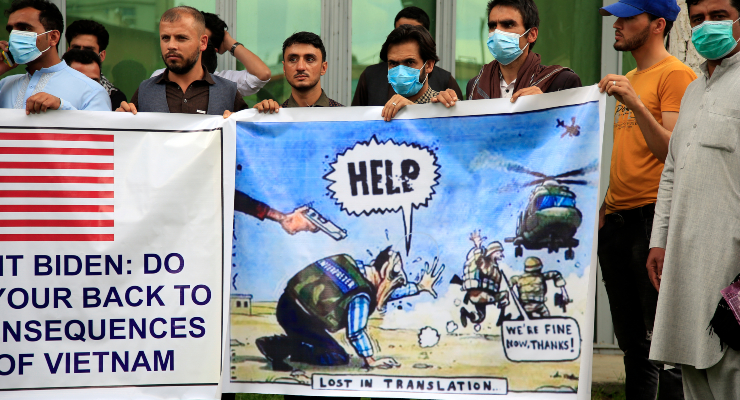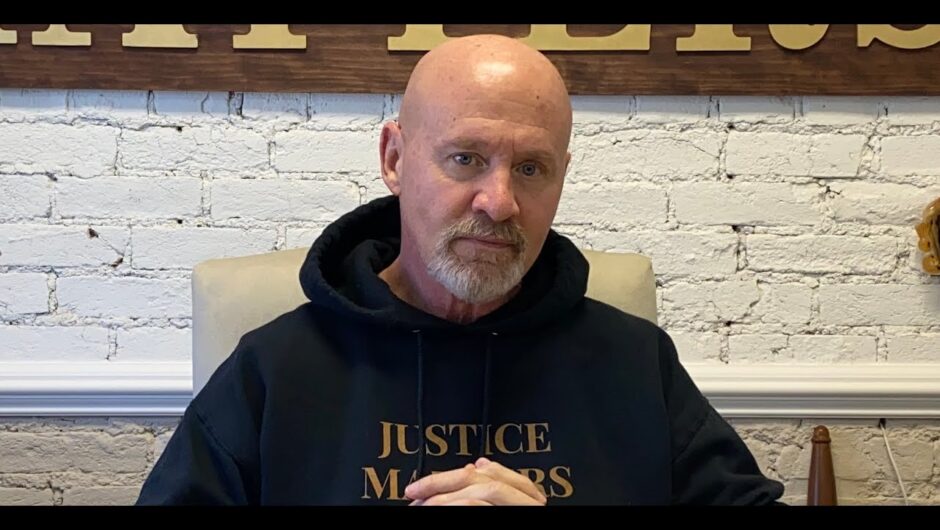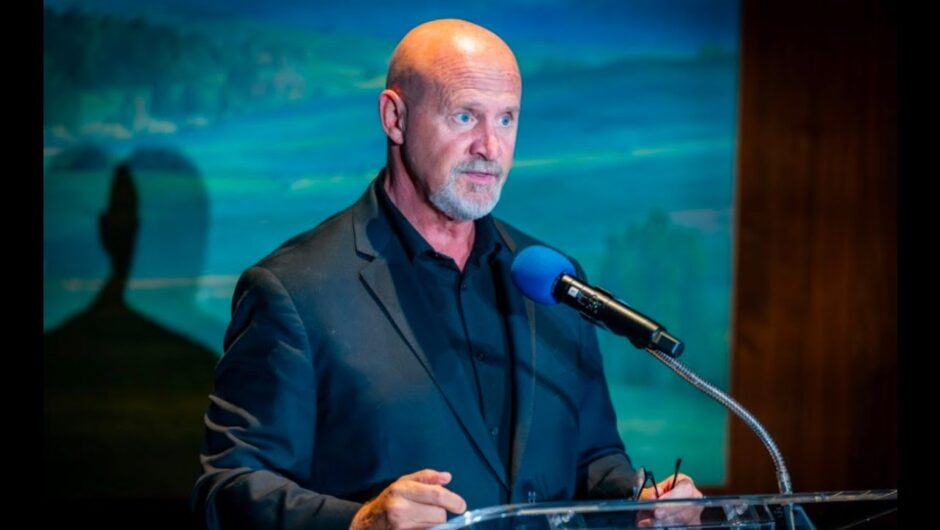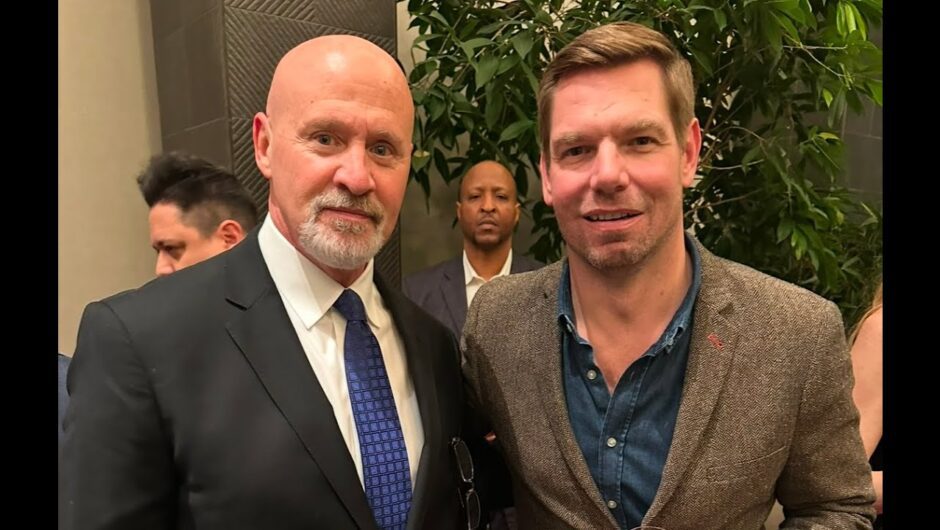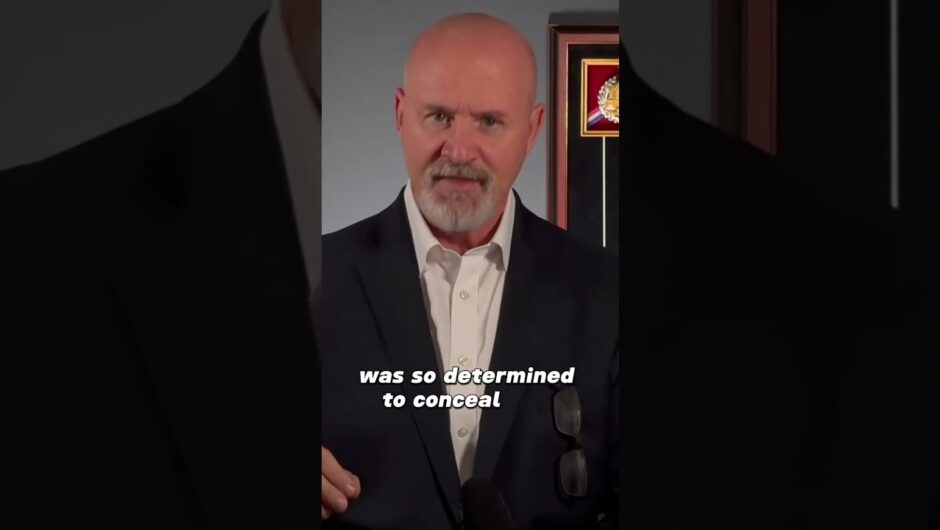Up to 1000 Afghan translators and support staff who helped Australian troops during the war face a devastating future as Western forces withdraw later this year. With the country on the brink of chaos ahead of the Western withdrawal, and with the Taliban already surging, translators and other staff have targets on their backs.
But just days after Britain announced a new plan to accelerate the repatriation of Afghan staff following the withdrawal, Foreign Minister Marise Payne confirmed at Senate estimates that there was no new approach from Australia to bring locally engaged employees in Afghanistan here. Now, the Morrison government is under fire for not doing enough to assure their safe resettlement in Australia.
A moral obligation
Australian troops and diplomatic staff would be lost in Afghanistan without the help of local staff. They’re the interpreters, fixers and guards who work with Australian forces at incredible personal risk.
For Labor’s foreign affairs spokesperson Penny Wong, ensuring Afghan translators were resettled was the right thing to do.
“These are friends of Australia and I think they deserve to be treated better than they have been thus far,” she said at Senate estimates.
Greens immigration spokesperson Nick McKim said visas should be provided to all locally engaged staff who requested it.
“People who have risked their personal safety on behalf of this government should be offered protection by this government. It is the very least we can do,” he told Crikey.
But the actual process for settling these staff is as cumbersome and bureaucratic as the situation in Afghanistan is volatile and dangerous.
Hugh Jeffrey, a defence first assistant secretary, explained to estimates that Australia would simply continue to process locally engaged employees as it always had. Under the current plan, some 600 Afghan staff, out of 1000 applicants, have settled in Australia since 2013. Add on their families and you get 1200.
Payne said the decision to grant the visas was a matter for Home Affairs, with the Department of Foreign Affairs and Trade, and Defence, both involved with the assessment. That’s three different Canberra-based departments handling applications from Afghanistan. And Australia just closed its embassy in Kabul.
Refugee Council of Australia vice-president William Maley, who is an international relations professor at the Australian National University, told Crikey that in a situation like this, “red tape tends to be fatal”.
“When one has a whole stack of elaborate procedures including security checks in Canberra, there’s a high likelihood that those in greatest danger will get caught,” he said.
Payne, meanwhile, wouldn’t even commit to a number of people the government hope to resettle.
“That will depend on the number of applications and eligibility is determined under the regulations I referred to before,” she said.
Bureaucratic malaise
The problem with Australia relying on the same process to resettle Afghan employees is that, thus far, the process has been a mess. When the government announced its decision to close the embassy, security guards were initially told they wouldn’t be eligible for resettlement. A quick about-face followed.
Application forms are long, confusing and in English. There is also a shortage of forms. And according to Jason Scanes, an Afghanistan veteran and campaigner for better protection for locally engaged employees, some interpreters have had to wait as long as seven years to get their applications processed.
The government has resettled 1200 people in eight years under the Locally Engaged Employees visa program. It needs to resettle almost that many as soon as possible, with allied troops set to leave by September. Scanes says unless interpreters and guards leave Afghanistan by then, they may never get safely to Australia.
“If they’re left there [in Afghanistan] when the last Coalition troops leave, unless they’re taken to a third country to concurrently have their visa application assessed, they won’t have an opportunity to leave.”
Other Coalition partners, such as the UK and US, seem to be making an effort. Australia, meanwhile, seems to lack the required will.
“It’s a serious mistake to chug along at normal pace,” Maley said.
According to Scanes, the decision to abandon Afghan staff will be deeply felt among veterans, whose relationship with the government and civilian institutions is already strained after a long, increasingly-tainted war.
“These people are a big part of what keeps us safe as soldiers when we commit our forces overseas,” he said.
“The veteran group will feel a great deal of shame, and a lot of damage done to Australia’s reputation abroad if we abandon them.”
Help us keep up the fight
Get Crikey for just $1 a week and support our journalists’ important work of uncovering the hypocrisies that infest our corridors of power.
If you haven’t joined us yet, subscribe today and get your first 12 weeks for $12.
Cancel anytime.

Peter Fray
Editor-in-chief of Crikey

